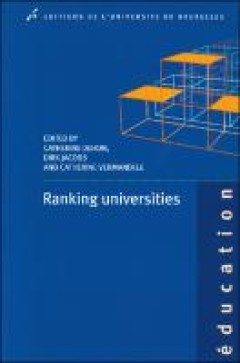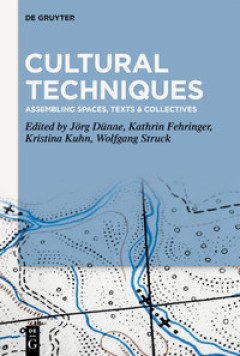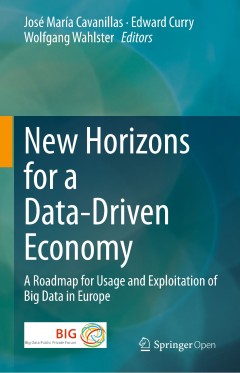Filter by

Ranking universities
University rankings are ‘hot’. Some universities, policy makers and journalists seem to take them quite seriously. At the same time, however, they are also fiercely criticized. The best known worldwide rankings tend, for instance, to have a strong anglo-saxon bias and tend to give insufficient valorisation to human sciences.
- Edition
- -
- ISBN/ISSN
- 9782800414416
- Collation
- X, 120 p.
- Series Title
- -
- Call Number
- 378 HAL r

Cultural techniques : assembling spaces, texts & collectives
This volume presents the preliminary results of the work carried out by the interdisciplinary cultural techniques research lab at the University of Erfurt. Taking up an impulse from media studies, its contributions examine —from a variety of disciplinary perspectives—the interplay between the formative processes of knowledge and action outlined within the conceptual framework of cultural te…
- Edition
- -
- ISBN/ISSN
- 9783110647044
- Collation
- VI, 346 p.
- Series Title
- -
- Call Number
- 306 CUL c

Nature Inc: environmental conservation in the neoliberal age
With global wildlife populations and biodiversity riches in peril, it is obvious that innovative methods of addressing our planet’s environmental problems are needed. But is “the market” the answer? Nature™ Inc. brings together cutting-edge research by respected scholars from around the world to analyze how “neoliberal conservation” is reshaping human–nature relations.
- Edition
- -
- ISBN/ISSN
- 9780816539215
- Collation
- 278 pages : illustrations ; 24 cm.
- Series Title
- Critical green engagements: investigating the green economy and its alternatives
- Call Number
- 363.7 NAT n

Word knowledge and word usage
Word storage and processing define a multi-factorial domain of scientific inquiry whose thorough investigation goes well beyond the boundaries of traditional disciplinary taxonomies, to require synergic integration of a wide range of methods, techniques and empirical and experimental findings. The present book intends to approach a few central issues concerning the organization, structure and f…
- Edition
- -
- ISBN/ISSN
- 9783110440577
- Collation
- IX< 717 p.
- Series Title
- -
- Call Number
- 121 WOR w

New horizons for a data-driven economy : a roadmap for usage and exploitation…
In this book readers will find technological discussions on the existing and emerging technologies across the different stages of the big data value chain. They will learn about legal aspects of big data, the social impact, and about education needs and requirements. And they will discover the business perspective and how big data technology can be exploited to deliver value within different se…
- Edition
- -
- ISBN/ISSN
- 9783319215693
- Collation
- xx, 303p. : ill.
- Series Title
- -
- Call Number
- 005.7 NEW n
 Computer Science, Information & General Works
Computer Science, Information & General Works  Philosophy & Psychology
Philosophy & Psychology  Religion
Religion  Social Sciences
Social Sciences  Language
Language  Pure Science
Pure Science  Applied Sciences
Applied Sciences  Art & Recreation
Art & Recreation  Literature
Literature  History & Geography
History & Geography